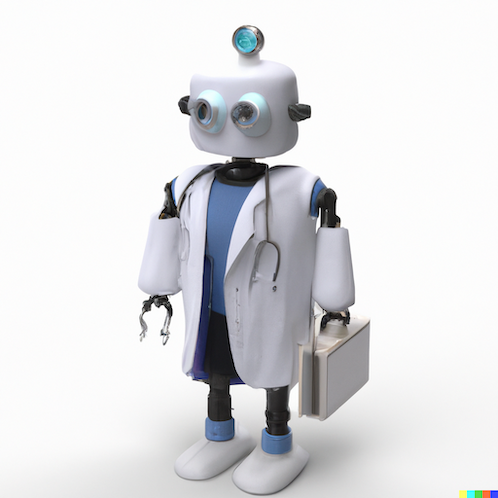Artificial intelligence (AI) is rapidly changing the healthcare industry by improving diagnosis and treatment. The use of AI in healthcare can help medical professionals provide more accurate diagnoses, create personalized treatment plans, and enhance patient outcomes. AI algorithms can analyze vast amounts of data in a short amount of time, leading to quicker and more precise diagnoses. In this article, we will discuss how AI is impacting healthcare and the benefits of its integration in the industry.
One of the most significant advantages of AI in healthcare is its ability to analyze large amounts of data quickly. With the vast amount of information available in healthcare, it is challenging for medical professionals to keep up-to-date with the latest research and developments. However, AI can analyze vast amounts of data in seconds, allowing doctors and other healthcare professionals to stay up-to-date with the latest research and findings.
AI can also assist in creating personalized treatment plans. As every patient’s body is unique, their responses to different treatments may vary. AI can analyze patient data, including medical history, genetic information, and environmental factors, to create personalized treatment plans that take into account individual patient needs. This can lead to more effective treatments and fewer side effects, improving patient outcomes.
Moreover, AI can also assist in identifying potential health issues before symptoms arise. For example, AI algorithms can analyze patient data to detect signs of cancer before it becomes symptomatic. This can lead to earlier intervention and better patient outcomes.
AI is also beneficial in reducing healthcare costs. By analyzing patient data and predicting health outcomes, healthcare providers can create more efficient and cost-effective treatment plans. This can lead to reduced healthcare costs for both patients and providers.
However, the integration of AI in healthcare also raises concerns about privacy and data security. Healthcare providers must ensure that patient data is protected and used only for the intended purposes. Additionally, the use of AI in healthcare must be regulated to ensure that it is used ethically and without bias.
In conclusion, the integration of AI in healthcare has the potential to revolutionize the industry. AI can help medical professionals provide more accurate diagnoses, create personalized treatment plans, and enhance patient outcomes. By analyzing vast amounts of data quickly, AI can assist in identifying potential health issues before symptoms arise, leading to earlier intervention and better patient outcomes. Additionally, AI can reduce healthcare costs by creating more efficient and cost-effective treatment plans. However, the use of AI in healthcare must be regulated to ensure that it is used ethically and without bias.





